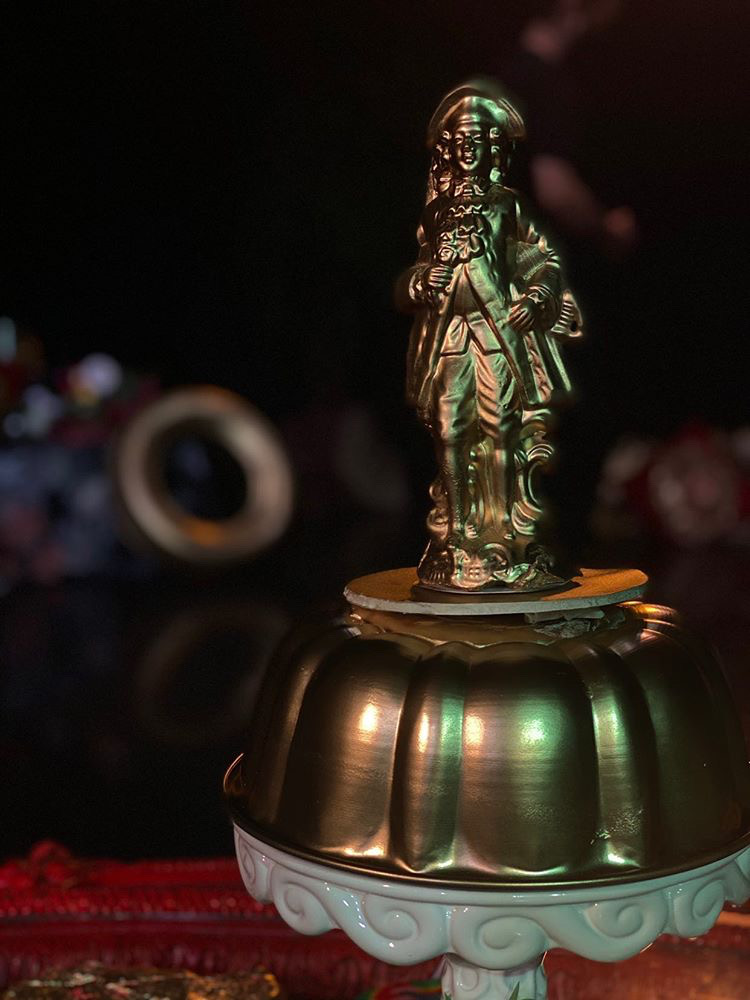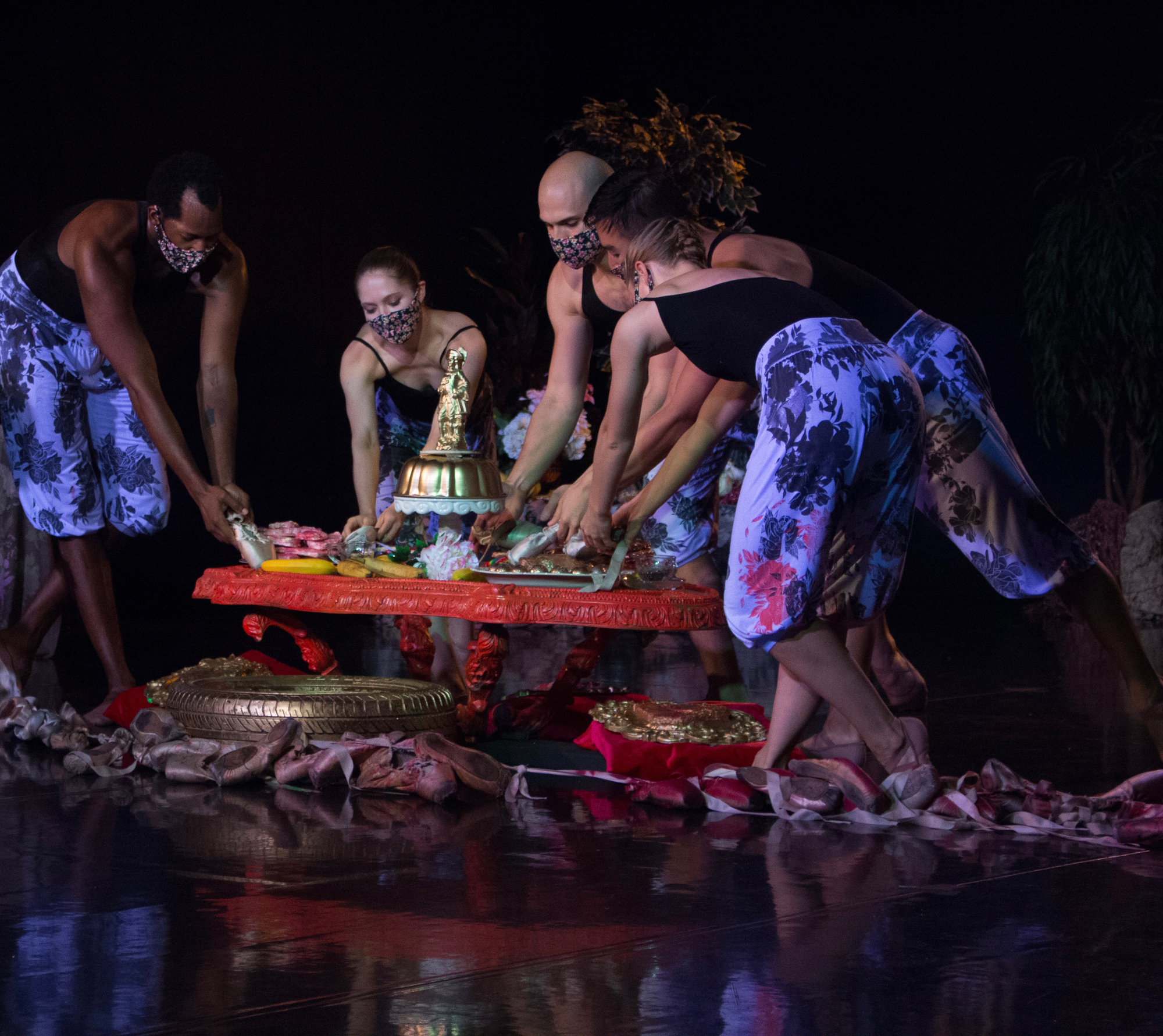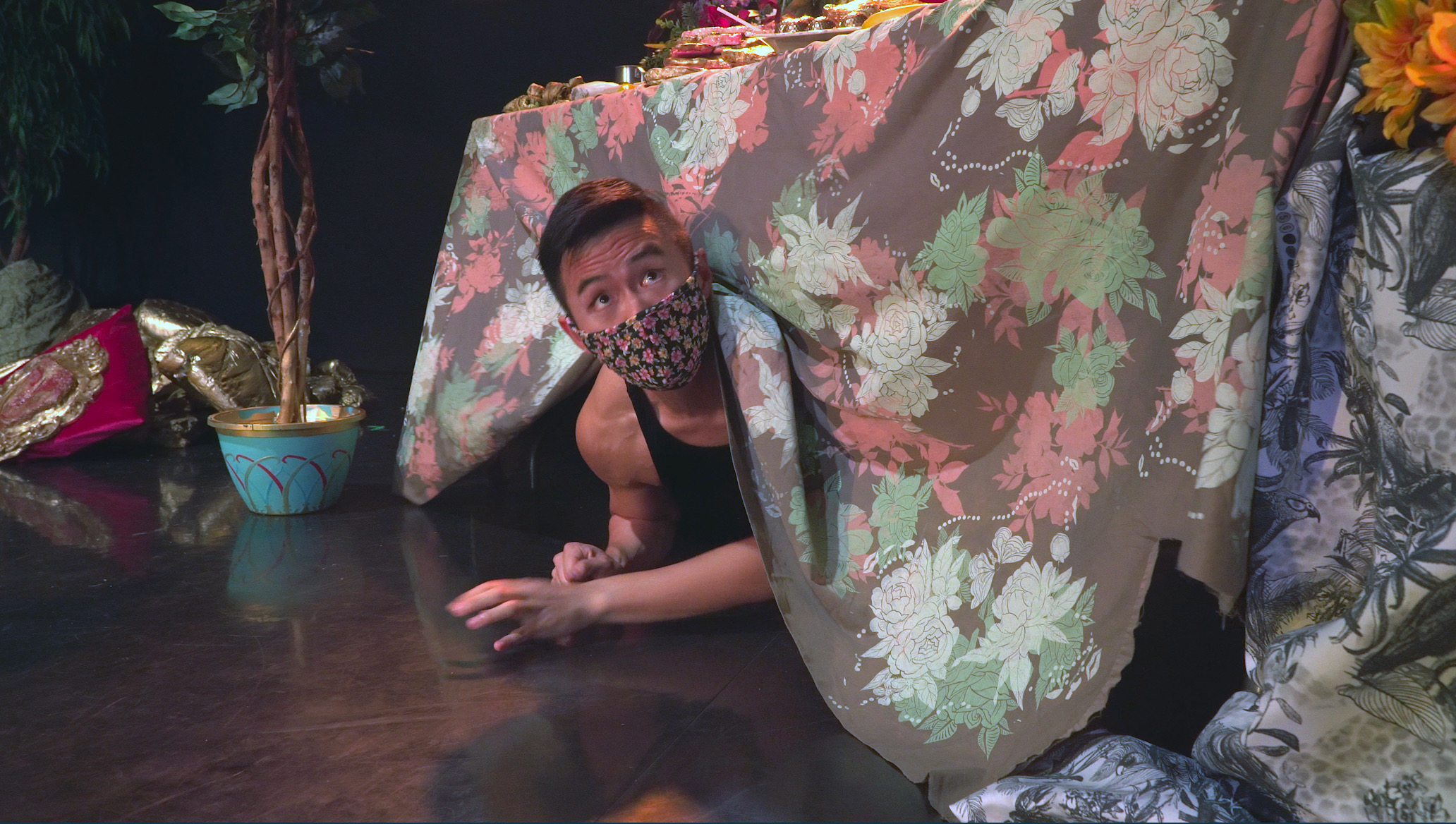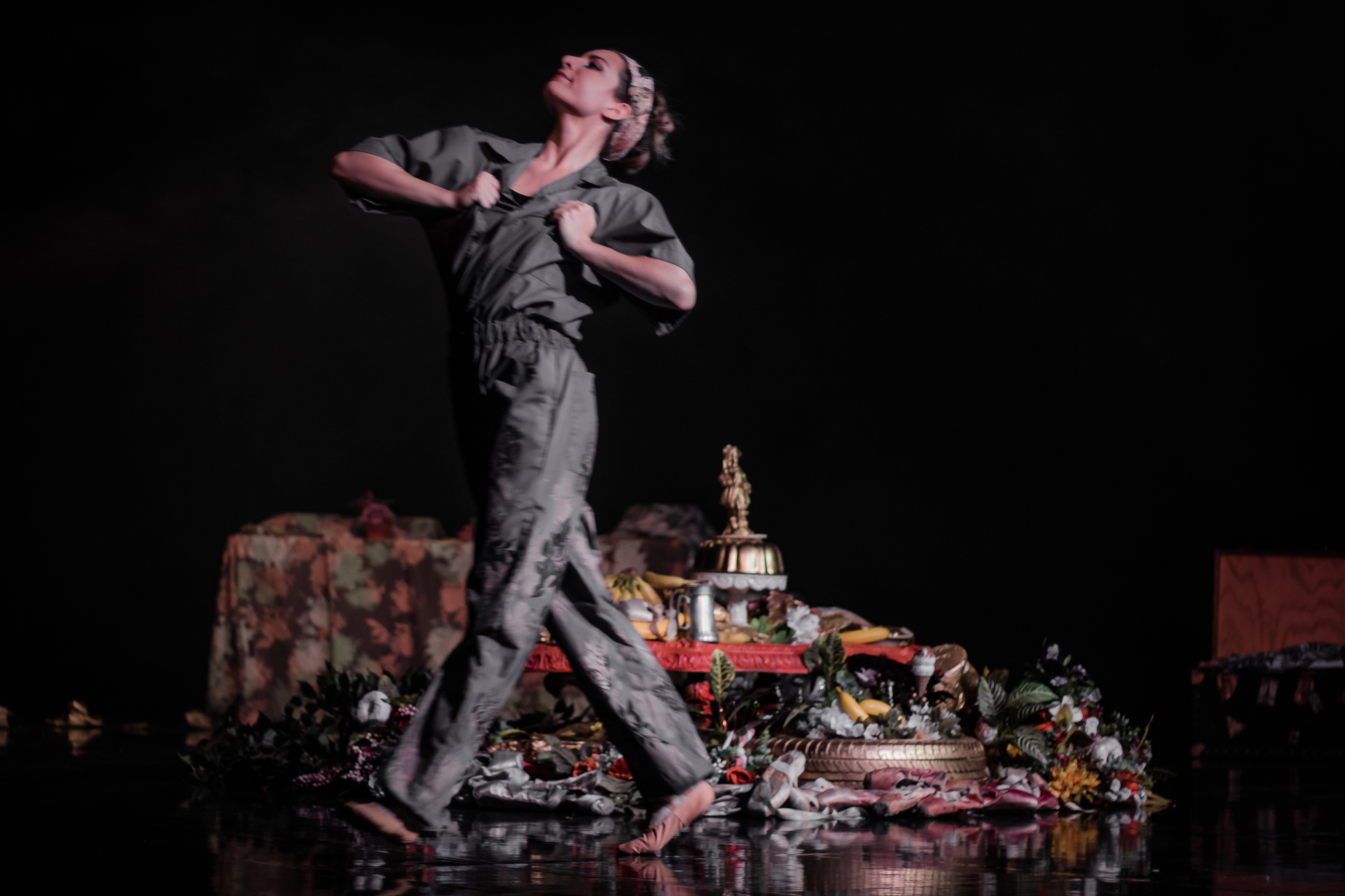
Overture
The Overture of FEAST: a ballet opens on an ornate set, reminiscent of a Dutch still life painting. The set is composed of four tables on the outskirts of the stage, and each table is adorned with sculptural and store-bought objects representing seven well-known commodities: Beef, Bananas, Coffee, Sugar, Minerals, Rubber, and Timber. Marie, the Monarch, enters and marvels at all of the wealth that surround her. When she approaches a fifth table at the center of the stage—one that presumably belongs to her—she is shocked and horrified to find that it is empty. With a clap of her hands, Marie summons her feline enabler, Kat, to bring a gold sculpture to rest on a pedestal at the center of her table. The sculpture is Lancelot, a symbol of aristocracy. Meanwhile, the first of the corps de ballet of dancers—the Leader— emerges. The Leader is enamored with Marie and her beauty, and removes a flower from his own table to give to her. Marie, hatching a plot to secure the resources she sees on the surrounding four tables for herself, instructs the Leader to place the gift on the center table with Lancelot. Eager to please her, the Leader obliges, and then watches a pleased Marie (and skittish Kat) leave. The Leader, having now learned that bestowing gifts appears to be the best way to please the prickly Monarch, begins to mimic Marie’s posh demeanor as the Overture comes to an end.

First Movement
As the first movement of the ballet begins, four other corps de ballet dancers emerge from the four lavishly decorated tables. The Leader, now believing he is above them in social status, tries to coerce the other dancers into also giving gifts to Lancelot, and therefore gain favor with the Monarch, Marie. The corps de ballet begins to buy into the newly learned idea that giving gifts to and pleasing Lancelot should be their ultimate goal. The Dissenter, who has been hiding up to this point, is then discovered keeping watch on them from under a table. Clutching tightly to her beloved banana, she is dragged out by the others and forced to hand over her prized possession to Lancelot. Her peers try (and succeed) in convincing the Dissenter that participating in this system is the best and only way forward. Over the course of the movement, the dancers begin to discreetly try to one-up each other with their gifts. The gifts begin growing in size from single bananas, steaks, cups of coffee, lollipops, and pointe shoes, to much larger items, such as a golden tire, six hats disguised as floral arrangements, a “snake” of more than 30 pointe shoes, and, ultimately, an entire ficus tree. Feeling that they have “won” by giving the biggest gift (the ficus), two of the dancers celebrate their accomplishment by ending the movement with a congratulatory elbow-bump. Lancelot’s table is now overflowing with gifts, while the rest of the tables are left empty and dilapidated.

Second Movement

Third Movement
The second movement has left the scene in chaos and disarray. Marie enters and is initially pleased with the almost comically large accumulation of wealth on Lancelot’s table. When she notices the mess that surrounds it, she again claps her hands to demand the mess be cleaned up, then arrogantly leaves without a second glance. Tina, the Invisible Worker, enters wielding a small broom and dustpan. Tina quickly realizes that these tiny cleaning utensils are insufficient to clean a mess of this scale, and retrieves a large push broom. All the while, Tina seems to be the only character thus far to see what a shame it is that all of the wealth has accumulated on Lancelot’s table, but feels powerless to change it. In order to survive (as Marie has never paid Tina for her work), Tina begins to take scraps of what has been left behind by the other dancers in their panic and haste. Tina concludes her solo by cleaning up the mess with which she was initially tasked, while also making off with several gold nuggets and the ficus tree.
Finale
The five corps de ballet dancers abruptly re-enter, and the action descends into further chaos because of the state in which they left their environment. They continue to turn on each other, becoming violent as they scour for scraps of the remaining resources on their four tables; they fail to even notice that everything has already been given to Lancelot. Meanwhile, the Dissenter is once again hiding in fear under a table, not wanting to participate in the madness. She sneaks out in the fervor and attempts to retrieve her original beloved banana from Lancelot’s table, finally succeeding. It is then that the Dissenter realizes that Lancelot has accumulated all of the wealth and resources, and that the others are fighting over mere scraps of what they had instead of addressing the root of the problem. The Dissenter shares her discovery with the Leader and the rest of the dancers, and they once again unite. The six hatch a plan to band together to reclaim their former wealth and dethrone Lancelot. They are ultimately successful, with the Dissenter removing Lancelot from his pedestal and the Leader smashing him, thus freeing the corps de ballet from the unforgiving and unsustainable cycle they so easily fell prey to.
